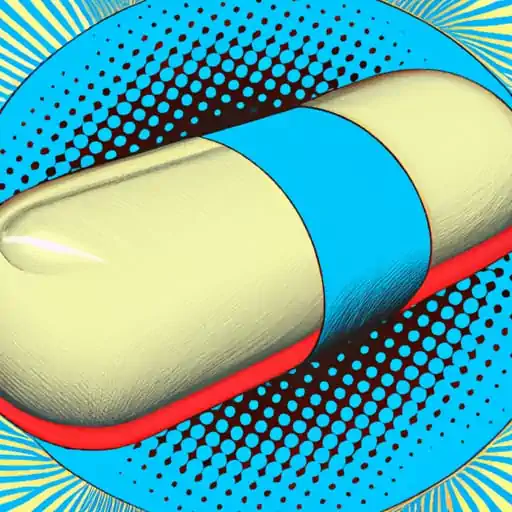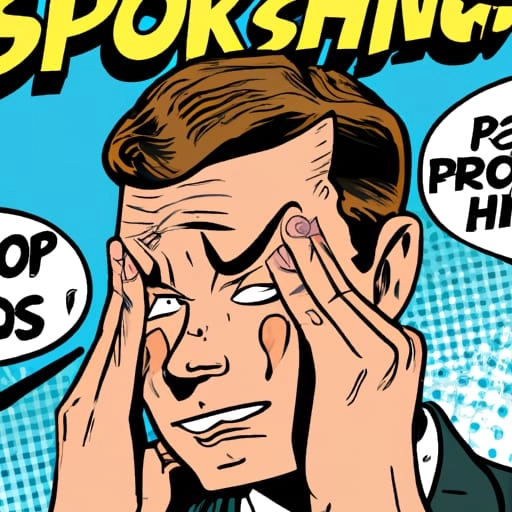Can Anxiety Make Your Teeth Hurt?
Stress and Dental Health: How Anxiety Causes Jaw Pain
TL;DR:
Anxiety can cause tooth pain and sensitivity due to increased muscle tension, changes in body temperature, and decreased blood flow. Stress can also lead to jaw pain and tooth damage caused by sleep bruxism. To protect your dental health, it’s important to practice good oral care habits, manage stress through relaxation techniques, and seek help from a dental professional or mental health professional if you’re experiencing chronic pain or severe dental anxiety.

Table of Contents
In More Depth:
It’s no secret that stress and anxiety can affect our physical and mental health in many ways. But did you know that chronic stress and anxiety can also have a significant impact on the health of your teeth and gums? In this blog post, we’ll take a closer look at how anxiety can cause jaw pain and other oral health issues, and provide tips on how to manage stress to protect your dental health.
The Connection Between Stress and Dental Problems
Stressful situations can lead to dental problems such as tooth decay, gum disease, and even tooth loss. When you’re under extreme stress, your body’s ability to fight off infections and other oral health issues is compromised. Chronic stress can also lead to unhealthy eating habits, which can contribute to tooth damage and decay.
Jaw Pain and TMJ Disorder
One common oral health issue caused by stress and anxiety is temporomandibular joint (TMJ) disorder. This condition affects the joint that connects your jawbone to your skull and can cause facial pain, jaw pain, and difficulty chewing. In severe cases, TMJ disorder may require dental treatment such as a dental splint or night guard to alleviate symptoms.

Sensitivity and Tooth Damage
Stress and anxiety can also lead to tooth sensitivity, as well as tooth damage and decay. If you’re under a lot of stress, you may be more likely to grind your teeth at night, which can cause damage to your tooth enamel. This can also lead to jaw pain and other oral health issues.
Dry Mouth and Canker Sores
Another common oral health issue associated with stress is dry mouth, which can lead to bad breath and oral infections. Additionally, stress can cause canker sores, which are painful ulcers that can develop inside the mouth.
Signs and Symptoms of Jaw Pain
It’s important to understand the signs and symptoms of jaw pain caused by anxiety so that you can identify the problem and seek treatment as soon as possible. Common symptoms of jaw pain include pain or tenderness in the jaw, difficulty chewing or opening the mouth, and popping or clicking sounds when opening the mouth.
The Role of the Immune System
When you’re under stress, your immune system is weakened, which can make you more susceptible to oral infections and other oral health issues. It’s important to maintain a healthy immune system by eating a balanced diet, getting enough rest, and managing stress.
The Importance of Regular Dental Appointments
Regular dental appointments are essential for maintaining good oral health and can help identify and treat oral health issues early on, before they become more serious. If you’re experiencing jaw pain or other oral health issues, it’s important to schedule a dental visit to get a professional diagnosis and treatment plan.

Additional Treatments for Jaw Pain
In addition to relaxation techniques and oral care habits, there are other treatments available for jaw pain caused by anxiety. For example, antiviral drugs may be prescribed for cold sores caused by stress, while a root canal may be necessary for tooth pain caused by grinding or clenching the teeth.
The Importance of Mental Health
Finally, it’s important to remember that anxiety disorders are a legitimate mental health issue that can have a significant impact on your overall health and well-being. If you’re experiencing chronic stress and anxiety, it’s important to seek help from a mental health professional who can provide support and treatment.
The Science Behind Stress-Related Toothache
Recent research has found that there is a strong link between stress and tooth pain. When you’re under a lot of stress, your body temperature rises and your blood vessels constrict, which can lead to increased sensitivity in your teeth and gums. Additionally, stress can cause muscle tension in your face, neck, and jaw, which can contribute to jaw pain and tooth damage.
Sleep Bruxism and Jaw Pain
One of the most common causes of tooth pain and jaw pain caused by stress is sleep bruxism, which is a condition where you grind or clench your teeth while you’re sleeping. This can lead to damage to your tooth enamel, as well as pain and discomfort in your jaw muscles.
The Importance of Regular Dental Check-Ups
Regular dental check-ups are essential for maintaining good oral health, especially if you’re experiencing chronic pain or other oral health issues. Your dental professional can examine your teeth and gums, and identify any signs of periodontal disease or other oral health issues. They can also recommend oral care routines and provide treatment options to alleviate pain and discomfort.
Oral Health Habits and Stress Management
In addition to regular dental check-ups, there are several oral health habits that can help manage stress and protect your dental health. For example, using a mouth guard at night can help prevent tooth damage caused by bruxism, while maintaining a healthy diet and avoiding sugary foods can reduce the risk of tooth decay. Additionally, practicing relaxation techniques such as deep breathing and warm compresses can help alleviate jaw pain caused by stress.
The Behavioral Effects of Stress on Oral Health
Stress can have a significant impact on your oral health, both physically and behaviorally. For example, stress can lead to irregular brushing and flossing habits, as well as bad habits such as nail biting or teeth grinding. By understanding the behavioral symptoms of stress and developing healthy coping mechanisms, you can protect your oral health and overall well-being.
People Also Ask:
Why do my teeth hurt when I’m anxious?
If you’ve ever experienced tooth pain or sensitivity when you’re feeling anxious, you’re not alone. There are a few reasons why this might be happening. One possibility is that stress can cause muscle tension in your face, neck, and jaw, which can lead to jaw pain and tooth damage. Additionally, stress can cause changes in your body temperature and blood flow, which can increase sensitivity in your teeth and gums.
Can anxiety make your teeth feel weird?
Yes, anxiety can make your teeth feel weird or uncomfortable. This can manifest in a few different ways, such as tooth sensitivity, a feeling of pressure in your teeth, or a tingling sensation. If you’re experiencing these symptoms, it’s important to talk to a dental professional to rule out any underlying oral health issues.
Can stress make your teeth sensitive?
Yes, stress can make your teeth sensitive. When you’re under a lot of stress, your body’s response can cause changes in your blood flow and body temperature, which can lead to increased sensitivity in your teeth and gums. Additionally, stress can cause muscle tension in your face, neck, and jaw, which can contribute to jaw pain and tooth damage. If you’re experiencing tooth sensitivity caused by stress, it’s important to take steps to manage stress and protect your dental health. This can include practicing relaxation techniques, maintaining a healthy diet, and avoiding sugary foods.

Conclusion: Can Anxiety Make Your Teeth Hurt?
In conclusion, there is a clear relationship between stress and dental health, and it’s important to understand how anxiety can make your teeth hurt. Whether you’re experiencing jaw pain, tooth sensitivity, or other oral health issues, it’s important to take steps to manage stress and protect your dental health. This can include practicing relaxation techniques, maintaining a healthy diet, and seeking help from a dental professional or mental health professional if you’re experiencing chronic pain or severe dental anxiety. By prioritizing your physical and mental health, you can protect your oral health and live a happier, healthier life.
References:
- American Dental Association. Stress and Your Dental Health. https://www.mouthhealthy.org/en/az-topics/s/stress-and-your-dental-health
- National Institute of Dental and Craniofacial Research. Bruxism (Teeth Grinding or Clenching). https://www.nidcr.nih.gov/health-info/bruxism
- Mayo Clinic. Teeth Grinding (Bruxism). https://www.mayoclinic.org/diseases-conditions/bruxism/symptoms-causes/syc-20356095
- Harvard Health Publishing. The Link Between Stress and Oral Health. https://www.health.harvard.edu/healthbeat/the-link-between-stress-and-oral-health
- Delta Dental. Can Stress Make Your Teeth Hurt? https://www.deltadental.com/grinmag/us/en/ddpa/2019/summer/ask-a-dentist/can-stress-make-your-teeth-hurt-.html
- American Psychological Association. Stress and Health: How Stress Affects Your Body. https://www.apa.org/topics/stress-health
- Centers for Disease Control and Prevention. Oral Health. https://www.cdc.gov/oralhealth/index.html






